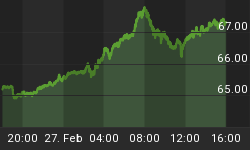At the end of its scheduled two-day meeting, the Federal Reserve's Open Market Committee (FOMC) confirmed it will leave its target range for the federal funds rate unchanged and is on schedule to phase out various special liquidity programs. The Fed also confirmed it will continue to buy mortgage backed-securities (MBS) and expects to gradually slow the pace of these purchases; the Fed expects the entire $1.25 billion of MBS purchases to be executed by the end of the first quarter of 2010.
Numerous observers have pointed out how this is a sign that the Fed is about to tighten access to credit. With due respect, this may be plain wrong. When the Fed engages in security purchases, be they MBS or government bonds, the Fed is increasing its balance sheet, thus adding a permanent stimulus that will remain unless withdrawn or otherwise sterilized. The Fed is not only keeping its bloated balance sheet, but expanding it further until the end of the first quarter of 2010.
The FOMC states: "With substantial resource slack likely to continue to dampen cost pressures and with longer-term inflation expectations stable, the committee expects that inflation will remain subdued for some time." In our assessment, this is about as clear as the Fed will ever be that there is no intent on tightening anytime soon despite recent signs of an economic pickup. The reasons given are resource slack and longer-term inflation expectations:
- It is rather controversial whether the resource slack will indeed be able to guarantee inflation will be contained. The 1970s are proof that the resource slack is not a good predictor of inflation. Some on the FOMC hold this view, as evidenced in past FOMC minutes, but it is not the prevailing view.
- The Fed relies on stable long-term inflation expectations. Because the Fed is ultimately responsible to manage long-term inflation expectations, the Fed is waging its credibility that it will be able to tighten when the time comes. In our assessment, a rather risky, if not irresponsible approach to monetary policy. It should be noted that in recent weeks long-term inflation expectations have inched above what is perceived the traditional target range for the Fed; at this stage, the FOMC might brush such warning signs aside, as they might argue it doesn't constitute a trend, yet.
Specifically, note that the Fed does not list improved economic and financial conditions as a condition to tighten, but only as a reason to phase out additional liquidity facilities. The Fed's balance sheet, when adding MBS purchases and commitment to buy securities, net of phased out liquidity programs, has continued to grow.
As a result, it seems that the Fed may indeed halt the massive balance sheet expansion at the end of the first quarter of 2010, but such a break is not indicative of tightening, but a pause at an extraordinarily accommodative level.
In our assessment, the Fed is continuing to ease at a time when the European Central Bank (ECB) has already withdrawn liquidity and central banks ranging from Australia to Norway have raised interest rates. It seems rather unlikely to us that the Fed will have a tighter policy than the ECB in 2010. Of course, the eurozone faces challenges in Greece, Ireland and Spain, amongst others; but the U.S. will also face substantial headwinds, for example, commercial real estate. Ultimately, the global tightening wave many market observers are predicting in 2010 may be far weaker than priced into the markets.















